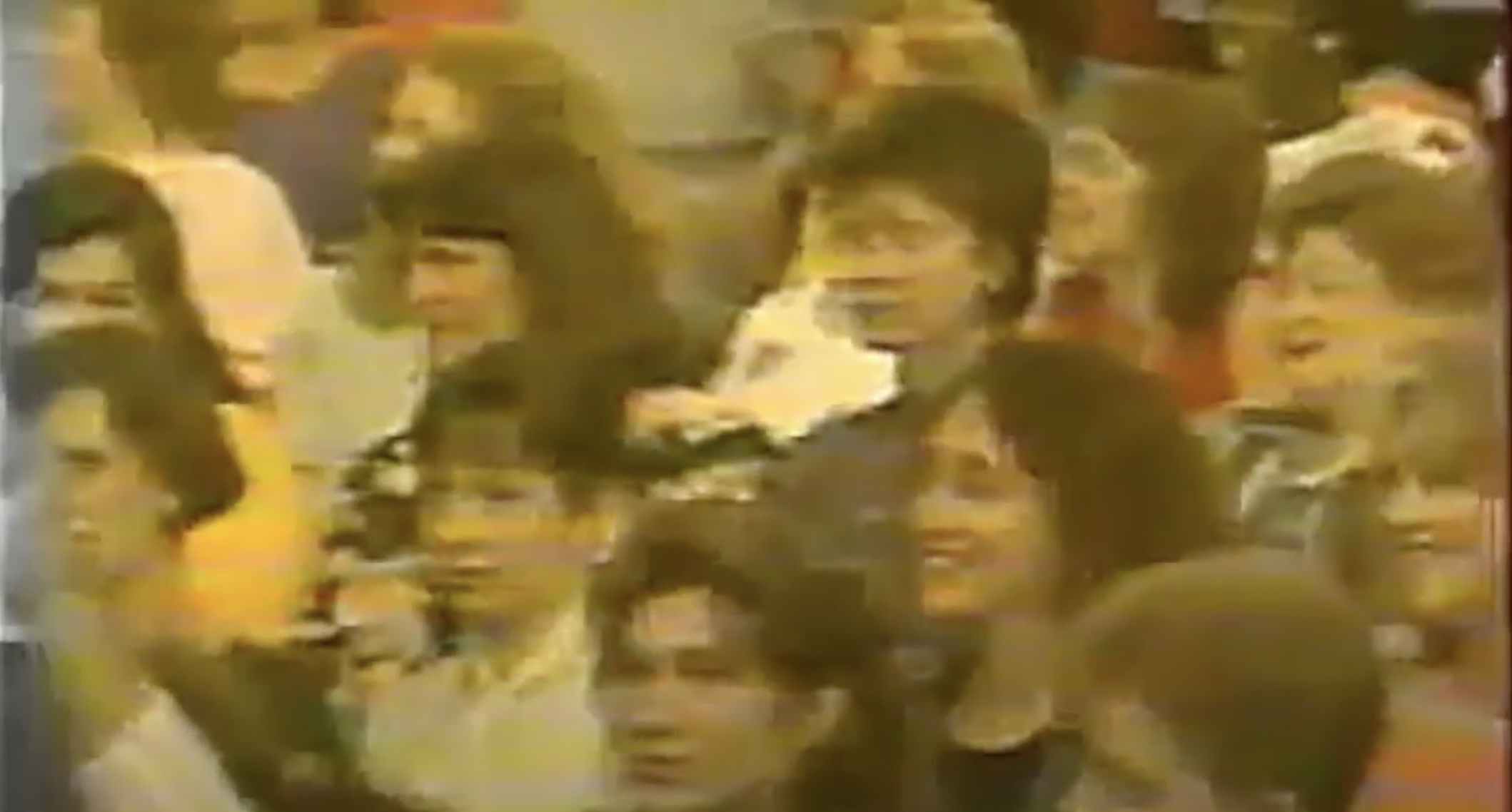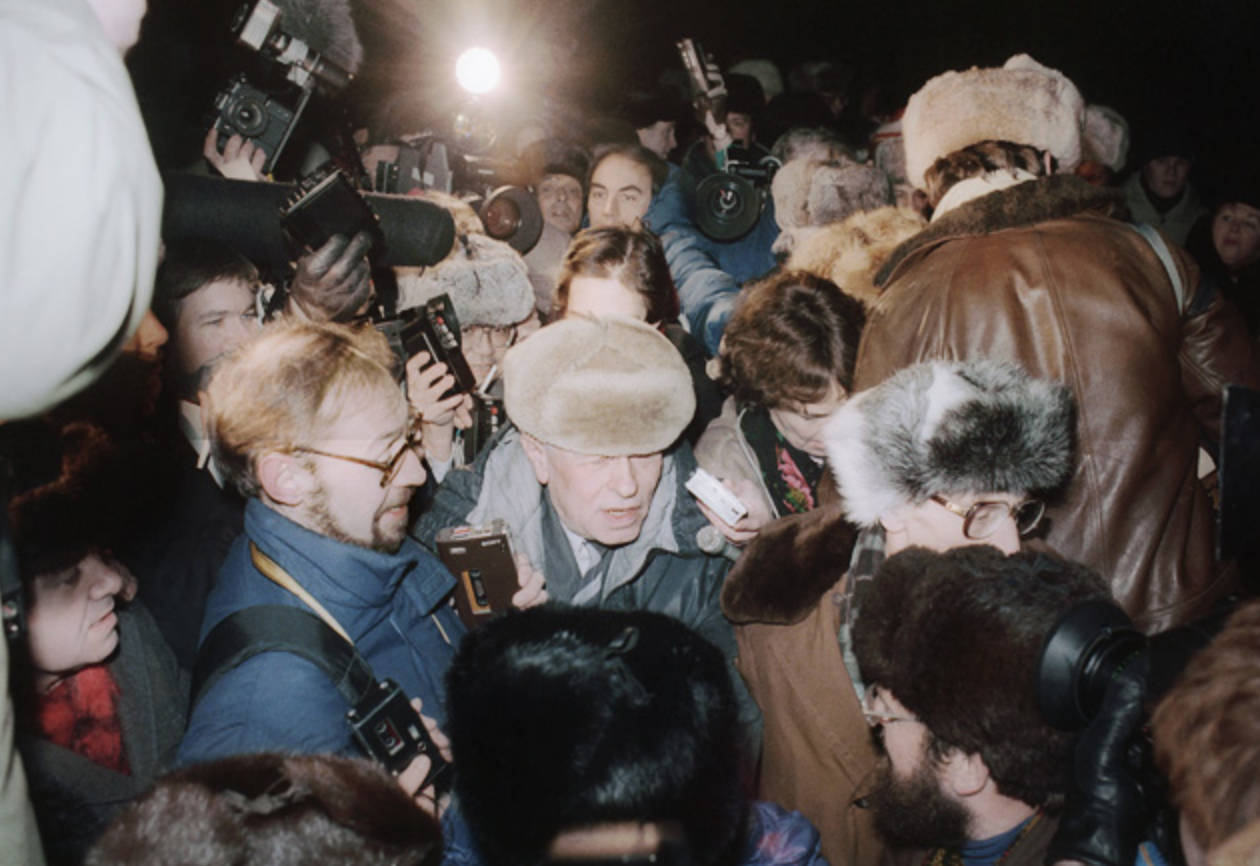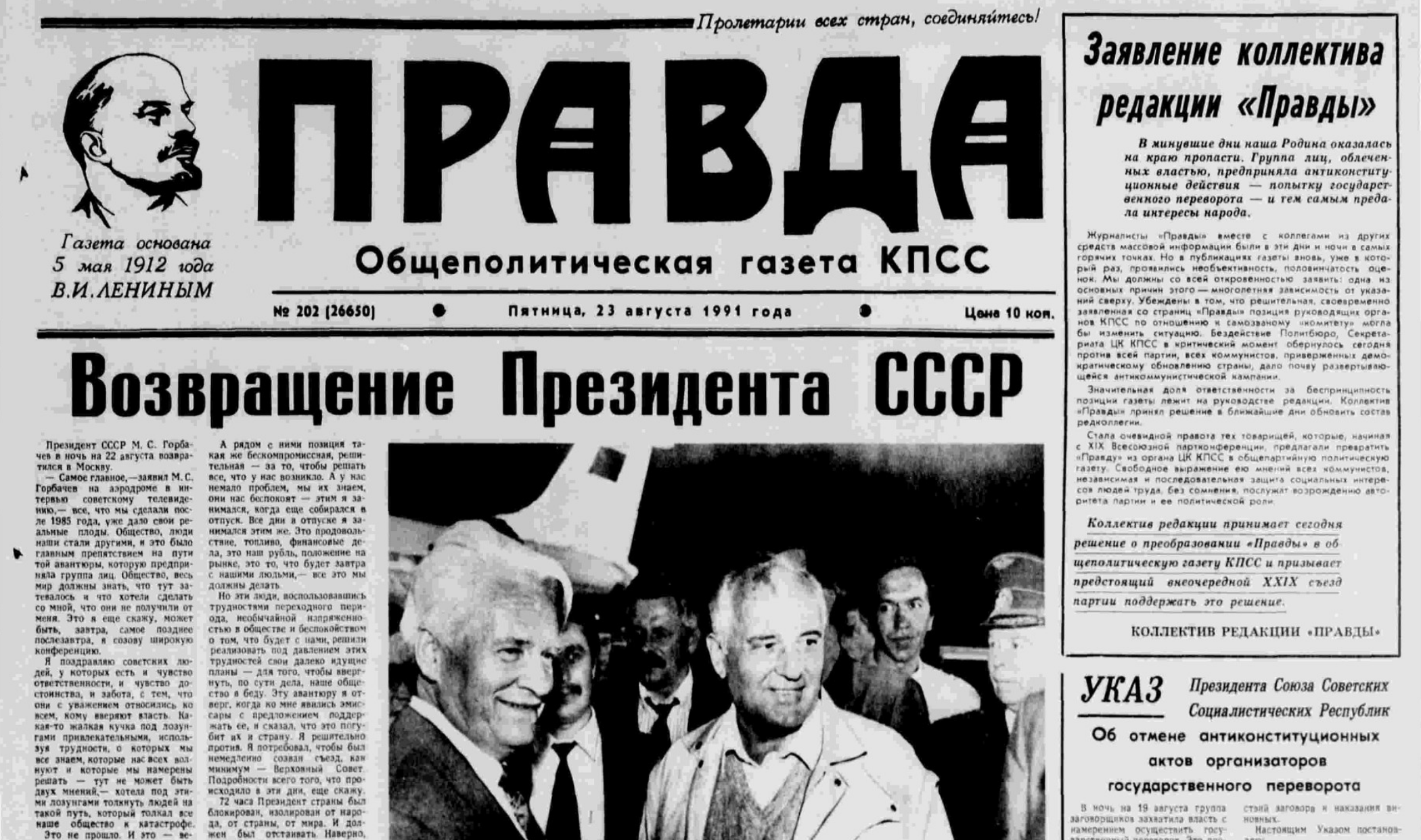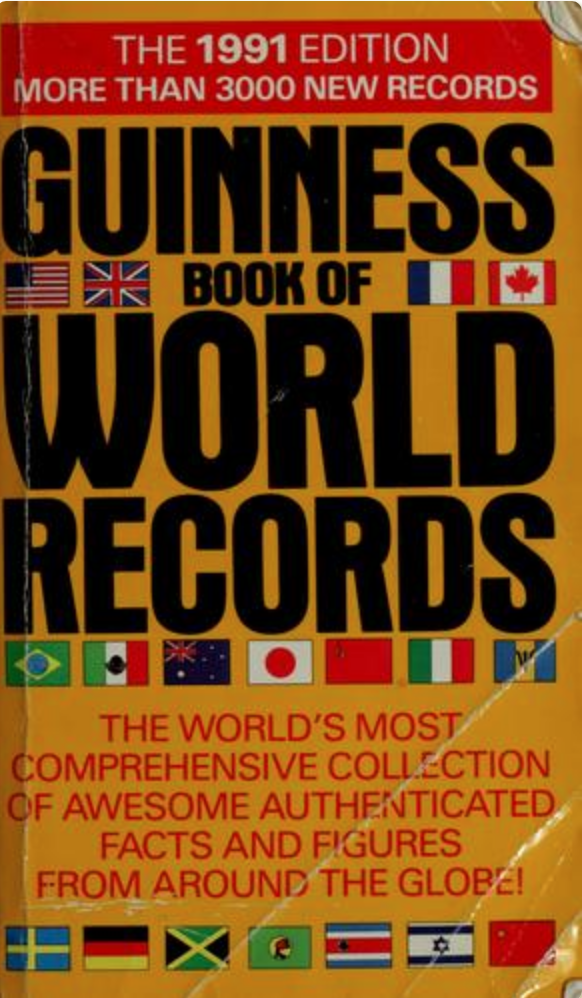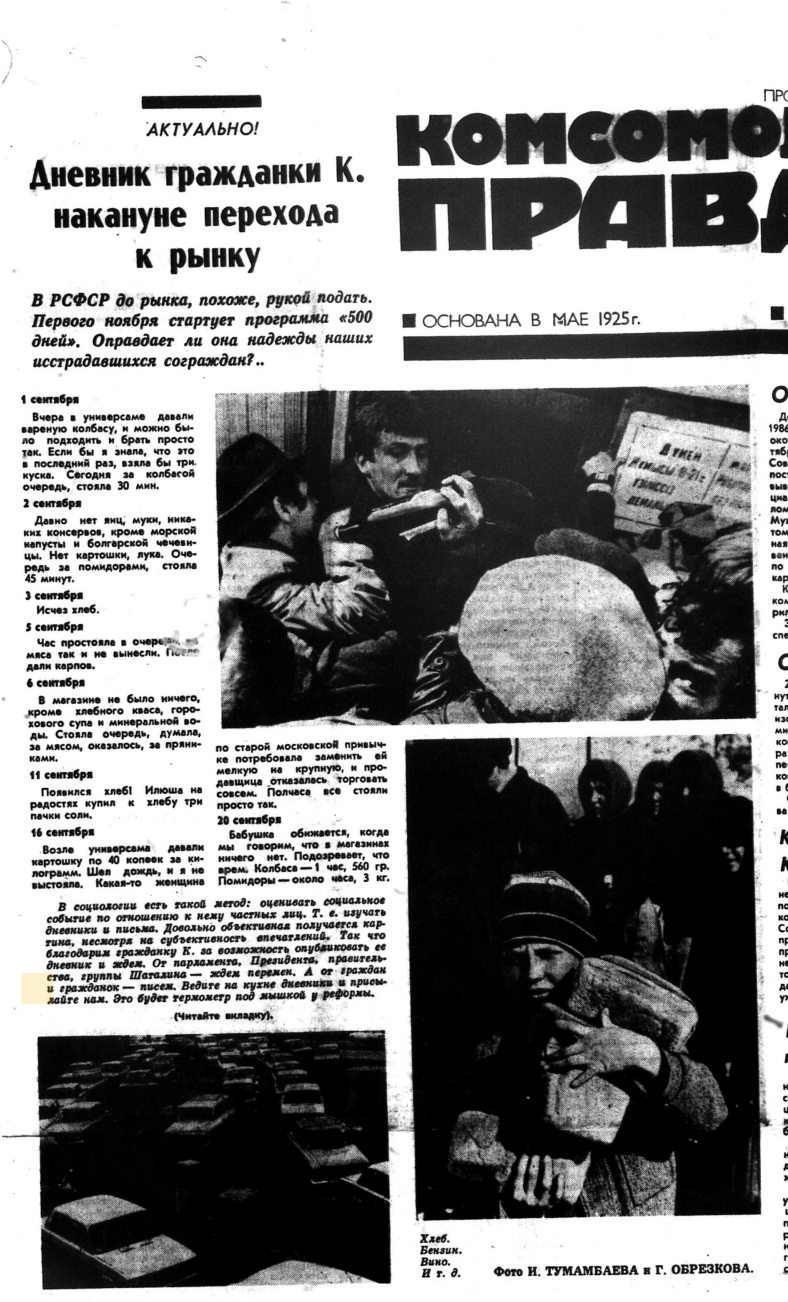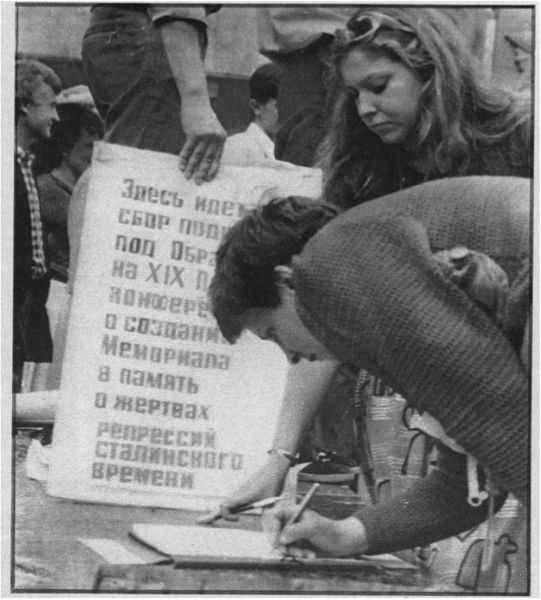Search Results
Search Terms
Results: Displaying Artifact 1 - 6 of 21 in total
Text Containing:
Thematic Tags: Dialogue
Perestroika-era Russian Women Speak to US Women
A clip from one of many perestroika-era televised conversations between American and Soviet "regular people," in which they find common ground with the help of longtime Soviet propagandist and future star of liberal post-Soviet TV, Vladimir Pozner (1934-).
Sakharov returns from Gorky
The return from exile of physicist, dissident, and 1975 Nobel Peace Prize laureate Andrei Sakharov (1921-1989) was a media sensation—here emblematized in a photograph of reporters swarming him as he steps out of a car in Moscow. His return marked a powerful popular comeback for the renowned human rights activist who, despite years of official condemnation, received growing press support through perestroika until his death in 1989.
"Pravda" editors pledge to do better, 23 August 1991
Editors’ statement on the front page of iconic Soviet/ Russian daily "Pravda" from 23 August 1991, just after the failed 1991 anti-Gorbachev putsch.
View Artifact
"Komsomolskaya pravda" sets a Guinness World Record
In May 1990, the long-running Soviet newspaper “Komsomolskaya pravda” set a world record with nearly 22 million daily copies. This staggering total marked the peak of Soviet print media's reach before the 1990 Press Law shifted financial responsibility to outlets themselves, making such high print runs unsustainable.
Citizen K.'s "Kitchen Diary" in "Komsomolskaya Pravda"
This editorial call, published on 29 September 1990 in the daily “Komsomolskaya pravda” (1925-), asked readers to keep and submit "kitchen diaries" on shortages and price changes in their area as a way to track the progress (and deficiencies) of perestroika-era economic reforms.
The founding of the Memorial Society in the late 1980s
Three moments in the early history of Memorial, a human rights group established in Gorbachev-era Russia (and abolished by Putin’s government in 2022) to document and memorialize Soviet political repressions and abuses.
View Artifact
